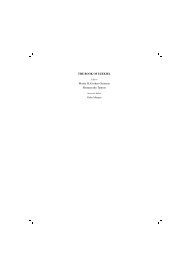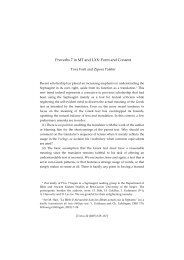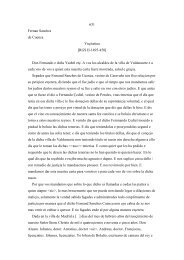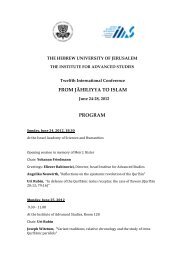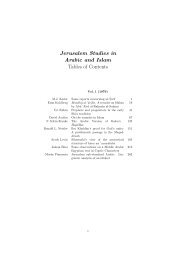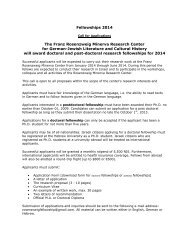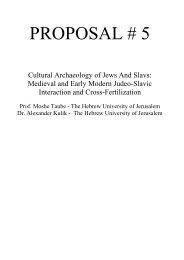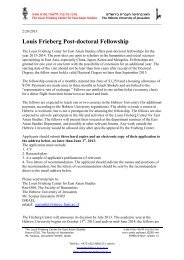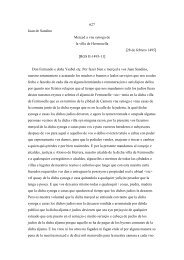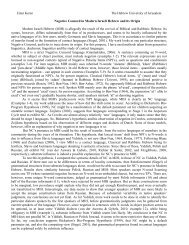Baber Johansen
Baber Johansen
Baber Johansen
You also want an ePaper? Increase the reach of your titles
YUMPU automatically turns print PDFs into web optimized ePapers that Google loves.
39<br />
the Muslim political community to monotheists. The Íanafīs and the<br />
Mālikīs never follow this move. In fact, fiqh’s claim to the universal<br />
validity of its norms renders necessary the inclusion of all members of<br />
the Muslim political community into the legal order of Islam.<br />
Fiqh’s norms on legal transactions confirm the legitimacy of the major<br />
institutions of Muslim society, organize their reproduction and discuss,<br />
on the basis of an immense wealth of information and systematic<br />
thought, social conflicts and social order in the Muslim political<br />
community. Fiqh, in this field, puts the social order of the community<br />
squarely into the center of law and religion. I will not go into any of the<br />
institutions of that law but content myself to draw the reader’s attention<br />
to those of its structures which relate directly to its religious foundations.<br />
It is, the jurists say, the objective law, the sharÝ, that determines what is<br />
forbidden and allowed. But if individuals acquire legal claims based on<br />
the norms of the objective law they may turn to the judiciary in order to<br />
see them protected as their subjective rights. Eleventh-century jurists<br />
discuss the importance of the relation between objective law and<br />
subjective rights for family and contract law. In the sphere of legal<br />
transactions, "God’s claims" on his servants are no longer the only or<br />
even the main category of rights. The "claims of men" take pride of place<br />
and often enjoy priority over the claims of God. Joseph Schacht has<br />
clearly stated this fact. He distinguishes two extreme cases of positive<br />
law. One is an "objective law which guarantees the subjective rights of<br />
individuals," the other one is a law "which reduces itself to<br />
administration, which is the sum total of particular commands". He<br />
states: "Islamic law belongs to the first type." 95<br />
Epistemological skepticism determines the debate on the status of legal<br />
norms in the field of legal transactions. Sunnī jurists do not place their<br />
trust in human reasoning as a source of legal norms. In principle, legal<br />
norms should be derived from the QurÞān, the Prophet’s normative<br />
practice, the consensus of the jurists, or the analogies based on these<br />
sources. Legal norms, in other words, should be derived from revealed<br />
texts. Only if the jurists cannot agree on such a norm, are they entitled to



